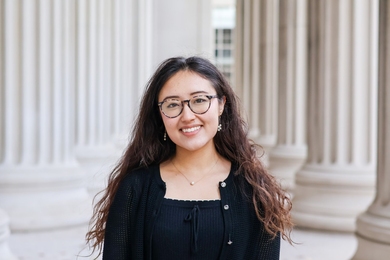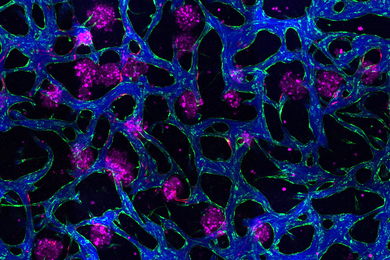Alexander Rich, the William Thompson Sedgwick Professor of Biophysics, traveled to Moscow last month to receive the Lomonosov Large Gold Medal for 2001 from the Russian Academy of Sciences, the highest award the academy offers.
Each year, a Russian and a non-Russian receive the award for outstanding achievements in the natural sciences and the humanities. This year's Russian recipient was biologist Alexander Spirin.
The Lomonosov medal is named after a distinguished 18th-century Russian scientist. Around 20 recipients of the award in his name also have received the Nobel prize. Thirty-two non-Russian scientists have received the award since its inception in 1959.
Other awardees with MIT connections are 2000 recipient Charles H. Townes, a physicist who built the first maser (microwave amplification by stimulated emission) and who served as provost of MIT; and 1997 recipient Frank Press, former head of the Department of Earth, Atmospheric and Planetary Sciences, president of the U.S. National Academy of Sciences and chairman of the National Research Council from 1981-93; and science adviser to the president and director of the Office of Science and Technology Policy from 1977-80.
The last American biologist to receive the award, in 1994, was James Watson, best known for his discovery of the structure of DNA. Linus Pauling, with whom Rich worked for five years as a postdoctoral fellow, was a 1977 recipient.
Rich was recognized for his achievements in the study of the structure of nucleic acids and the functions of ribosomes.
A version of this article appeared in MIT Tech Talk on June 5, 2002.






